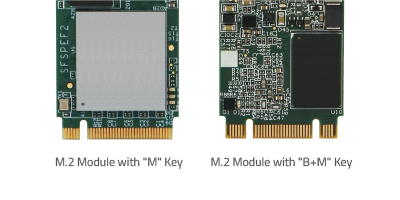There's something about the term NGFF that's driving me crazy (I know the full form).
I know what SATA, M.2, NGFF, NVMe and PCIe mean separately. I know what M key, B key and B&M key slots are.
I know the distinction between slot/connector name, form factor name and interface/protocol name.
I also know that there are M.2 SATA and M.2 NVMe SSDs.
What confuses me is when vendors offer NGFF-compatible or dual NGFF/NVMe-compatible products without specifying the interface.
Wikipedia simply says (paraphrased) that NGFF is the old name for M.2. But when vendors say their product is compatible with both NGFF and NVMe, they seem to mean that the product can handle both SATA and PCIe devices (maybe mSATA too), but I've never seen anyone actually spell it out that way. All the search results I've read are equally vague about that.
To sum up: Is the term NGFF used exclusively for M.2 SATA? Thanks in advance.
I know what SATA, M.2, NGFF, NVMe and PCIe mean separately. I know what M key, B key and B&M key slots are.
I know the distinction between slot/connector name, form factor name and interface/protocol name.
I also know that there are M.2 SATA and M.2 NVMe SSDs.
What confuses me is when vendors offer NGFF-compatible or dual NGFF/NVMe-compatible products without specifying the interface.
Wikipedia simply says (paraphrased) that NGFF is the old name for M.2. But when vendors say their product is compatible with both NGFF and NVMe, they seem to mean that the product can handle both SATA and PCIe devices (maybe mSATA too), but I've never seen anyone actually spell it out that way. All the search results I've read are equally vague about that.
To sum up: Is the term NGFF used exclusively for M.2 SATA? Thanks in advance.


